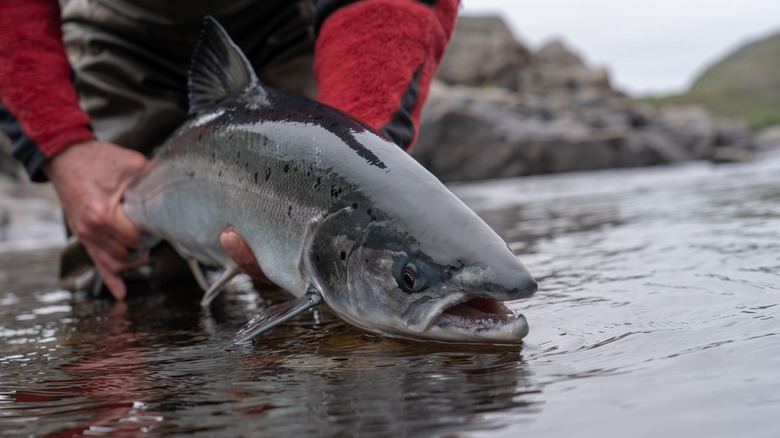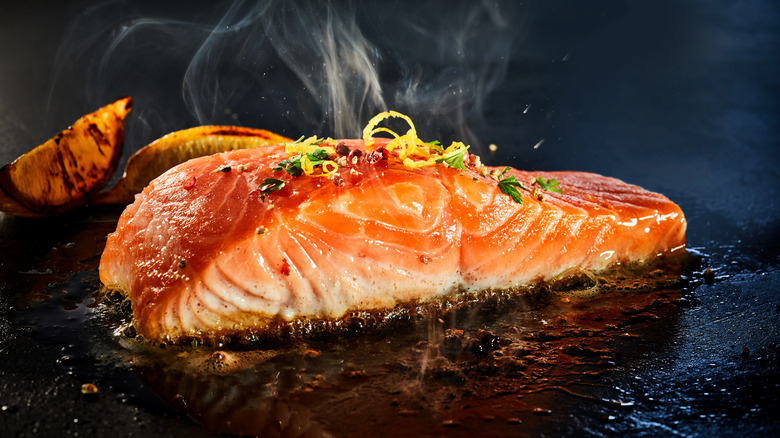The Real Reason King Salmon Is So Expensive
According to a 2019 survey featured by Seafood Source, only about half of Americans eat seafood regularly. A little surprising considering the many health benefits of eating fish and shellfish, not to mention the sea of options to choose from. But those who do enjoy seafood do so with gusto. They'll splurge on jumbo shrimp for their shrimp cocktails, accept the market price for their king crab legs, and save their pennies for lobster tails for their summer seafood boils. It may not come as a surprise that the most popular seafood in America is shrimp, per Intrafish. According to the website, the runner-up wasn't tuna, catfish, or crab, but salmon, with (seafood-eating) Americans enjoying 2.55 pounds per person in 2018.
Salmon is full of healthy omega-3 fatty acids yet low in saturated fat and high in protein, per Web MD. It doesn't hurt that it happens to also taste delicious. There are several species of salmon available for Americans to buy, according to Food & Wine. They are farmed Atlantic, steelhead (also called ocean trout), chum, pink, Coho, sockeye, and king or Chinook. They all differ in things like color, size, if they are good for eating or serve another purpose (like for providing roe), and, of course, cost. While you can drop a couple of bucks on pink salmon and prepare a meal (it's most often canned), it's the price tag of king salmon that might have you gasping for air.
The Poshest Fish
Quality Seafood Delivery claims that king salmon sells for a whopping $30 to $70 per pound. This places king priced at twice the cost of other salmon. With the species growing anywhere from 30 to over 100 pounds, you do the math on what an entire fish would set you back. The biggest reason for its hefty price tag is probably its rarity, according to Food & Wine. In 2019, American commercial fishermen caught 9.9 million pounds of king salmon compared to 290 million pounds of sockeye. Per The Atlantic, it has the highest fat content of all the salmon species, giving it an incredible, rich texture. The large, meaty filets mean it can stand up to various cooking methods, making king the most prized salmon available.
Even more rare is the elusive ivory king salmon. Essentially king salmon, ivory king have a recessive gene that keeps the flesh from absorbing the classic pink, red, or orange color that most salmon have, per Savory Alaska. On the outside, the fish looks like a standard king. It's not until the fish is processed that fishermen know what they've landed on. They are so prized and scarce that it's rare to see them for sale in even the most upscale restaurants and markets. Fortunately, many other salmon types are readily available to Americans, and it doesn't have to cost an arm and a leg. Maybe save the king for a special occasion worth splurging on.

